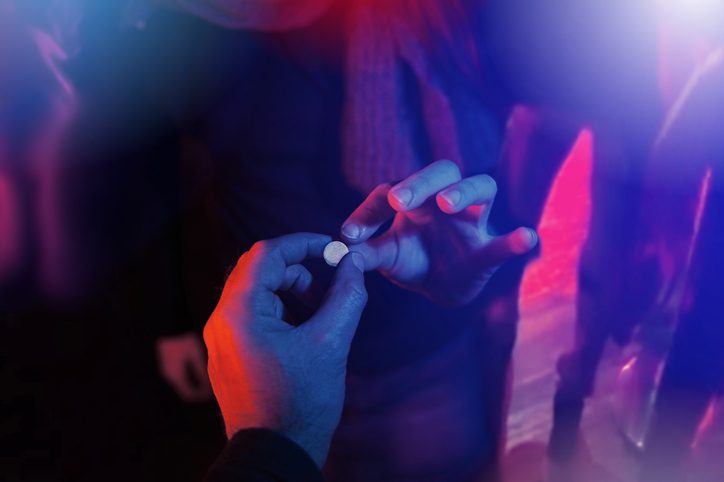Every now and then, we all need a refresher about one topic or another. Your employer might ask you to review a variety of policies each year, for example. Or you might try to brush up on a foreign language you haven’t studied since high school because you are planning to visit a place where the language is spoken. Or you might have to dig out an old cookbook to make sure you are remembering a recipe correctly.
You might think of this blog entry as a recovery refresher centered on different types of drugs.
When you are doing the hard work of maintaining your sobriety, a reminder of the dangers presented by various drugs can help you stay motivated. To that end, we are looking back to some previous blog entries to remind you why your sobriety is so much better than being under the ongoing influence of drugs or alcohol.
Special K is One of Many Dangerous Club Drugs
The following is an excerpt from a blog entry titled, “Club Drug Users Are Not a Club You Want to Be Part Of.”
Ketamine is a man-made drug and was first synthesized in the 1960s to serve as a sedative or anesthetic. In 2019, a form of the drug was actually approved by the Food and Drug Administration for use as an antidepressant. But between its usefulness as a sedative and as an antidepressant lies the more troublesome territory of its use as the club drug commonly referred to as Special K.
Here’s what a report from Business Insider had to say about impacts of Special K:
“[I]n low doses, like what you might find at a club or in a spray of the FDA-approved drug esketamine, it actually ramps up glutamate [a neurotransmitter] production, and that comes with all kinds of side effects. It can make you hallucinate or feel as though you’re losing touch with reality….”
While in this altered state, a person may engage in all sorts of risky behaviors that could have lasting consequences—ranging from driving under the influence to engaging in risky sexual encounters. Meanwhile, regular use of Special K (or any of the club drugs) can easily lead to the development of a substance use disorder.
Downers Like Valium Come with Dangers
The following is an excerpt from a blog entry titled, “Too High or Too Low: The Reality of Ecstasy and Valium Abuse.”
Valium works by literally slowing activity in the brain, which can tamp down ongoing feelings of anxiety and bring extremely welcome relief.
However, if the drug is misused—perhaps by someone who originally used it properly but has slipped into abusing the drug in an effort to sustain the feelings of calm it provides—it can cause all sorts of problems that have nothing to do with feeling relaxed.
Symptoms of Valium abuse include:
- Drowsiness, dizziness, and/or confusion
- Slurred speech, weakness, and/or impaired coordination
- Blurred vision and/or dilated pupils
- Markedly slowed breathing and/or an irregular heartbeat
- The development of skin rashes and/or changes in appetite
- An uptick in feelings of sadness and/or irritability
- Seizures
The Search for Pain Relief can Become a Problem
The following is an excerpt from a blog entry titled, “Hydrocodone Can Become a Prescription for Problems.”
There is no denying that relief from pain is a powerful motivator. Severe pain disrupts a person’s life in a whole range of ways, so any drug that can provide even temporary improvement is welcome.
But that welcome feeling of relief can sometimes be enough to encourage a person to take more hydrocodone than they should, take it for a longer period of time than they should, or both. As that process continues (perhaps enabled by so-called “doctor shopping” or an illicit source for the drug), the user is also developing a tolerance for the drug, which means they need to take more hydrocodone to get the same effects the drug used to have at lower doses.
Soon, the person taking too much hydrocodone for too long may no longer need it for pain relief. Now, they are addicted to the drug itself–and likely experiencing some troubling symptoms.
Ready to Make a Change? We are Ready to Help.
At Wooded Glen Recovery Center in Henryville, Indiana, we understand that each individual we treat deserves personalized care grounded in evidence, expertise, experience, and empathy. If you are struggling with drugs or alcohol, it may feel as though you have nowhere to turn. Happily, that is not the case. Wooded Glen can help you get sober and stay sober—and we can address co-occurring mental health disorders that may be tangled up with a substance use disorder.
The time to get treatment for a substance use disorder is always right now. We are ready when you are.

